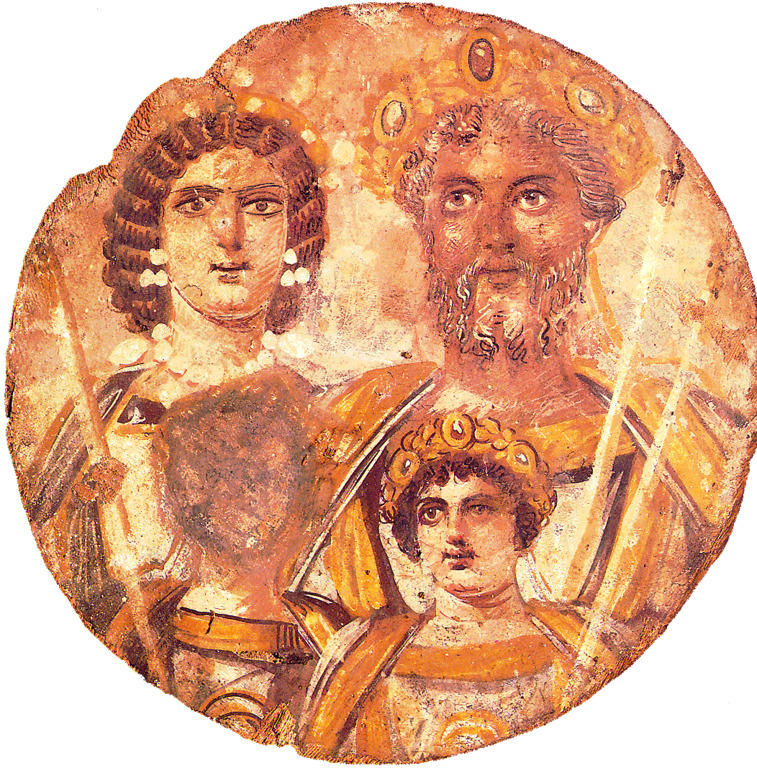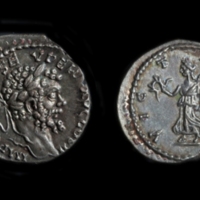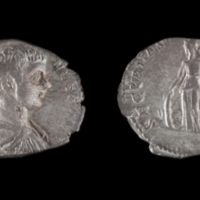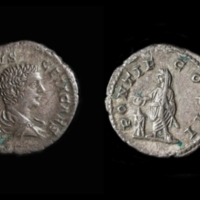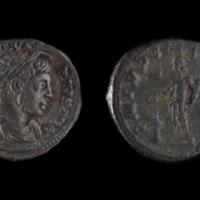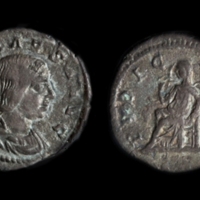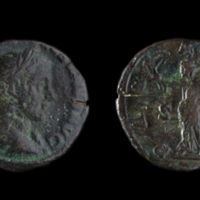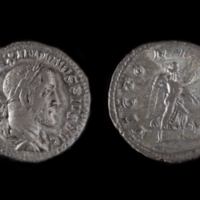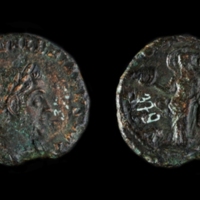Severan to Third Century Crisis
Septimius Severus came into power much the same way Vespasian had: after the quick succession of five emperors in 193 CE when Commodus was murdered at the very end of 192 CE.
First was the older senator P. Helvius Pertinax, and though proclaiming to rule merely as the Princeps Senatus, leader of the senate, he was assassinated soon after because of inadequate "donations" to the soldiers. The Praetorian Guard, taking matters into their own hands, put the imperial seat up for auction. The winner was a wealthy senator, Didius Julianus, vowing 25,000 sesterces per man.
However, a different story was playing out in the provinces where both Septimius Severus and Pescennius Niger were proclaimed emperor by their troops. After Severus won the initial battle, he hastened to the capital where Didius Juilanus was essentially powerless to stop him and was quickly assassinated.
Pescennius Niger was ultimately defeated in the battle of Issus in Cilicia (the same place Alexander the Great had defeated Darius hundreds of years earlier).
There was essentially only one other person, Clodius Albinus, with enough power to challenge Septimius Severus, and instead of fighting him, Septimius adopted him as his heir. This, however, did not last long and their final battle was held in 197 BCE in the Battle of Lyons. Albinus was swiftly and decisively beaten, leaving Septimius with sole control of the empire.
Lacking legitimate claim to power, Septimius said that supernatural portents to had singled him out as the ultimate ruler. He also fashioned himself as the avenger of the rightfully elected (and wrongfully assassinated) Pertinax.
Though not officially leader of an unchallenged reign until his defeat of Albinus in 197 CE, Septimius Severus asserted that his reign began in 193 CE, when his troops had proclaimed him emperor in the provinces.
In 198 CE, he proclaimed his older son, commonly known as Caracalla (a reference to the Gallic hooded-cloak he often wore), co-emperor. Geta, Septimius' younger son was also named co-emperor in 209 CE.
Severus died in 211 CE and his two sons, Caracalla and Geta, took the throne. Geta was murdered by his brother later that year and Caracalla reined for only six years more. In 217 CE he was murdered, apparently by Macrinus, his Praetorian Praefect, who then took the empire for himself.
This series of events ushered in a long period of "soldier emperors” who took power based on their military strength. It was not until almost seventy years later when Diocletian took power in 284 CE that any sort of order came to the way leadership was passed between emperors. Reigns during this turbulent time period were short, violent, and unstructured: many emperors were not in power long enough to step foot in Rome. It became known as the third century crisis.
